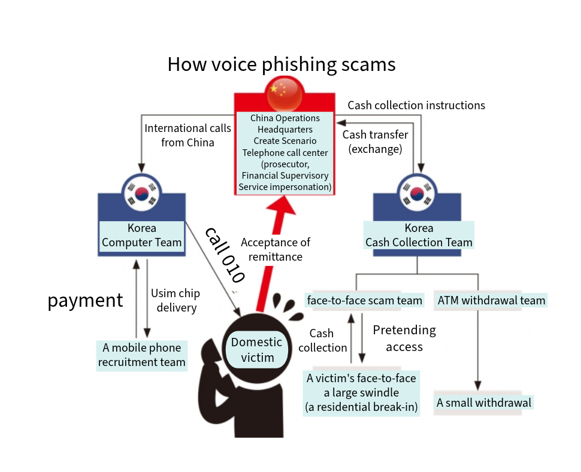
What if they suddenly gave such an order saying they are a detective at the Seoul Metropolitan Investigation Unit? Five out of 10 people hang up the phone. It is absurd. However, the other five continue the conversation. Curiousness comes first. Then, the detective urges, “Your bank account is being used as a fake bank account. First, find the money, put it in a safe place, and let’s meet for more details.” Then, four out of five people hang up because they think something is wrong. However, one of them is nervous. Then, he gives his house password and goes to the place the detective promised. Meanwhile, $120,000 in cash stored in the freezer will disappear. The detective is not a story in the novel. This is a phone financial scam that a woman in her 70s suffered in Goyang, Gyeonggi Province, in June. Some people laugh at me, saying, “Why are you tricked?” They lost an average of 1 million dollars a day last year, a total of 40 million dollars. The pockets of ordinary people are threatened by the increasingly bold and meticulous bait of the voice phishing gang.

Former and incumbent voice phishing gang members told the Journal that Korea is a good place to fish, about the system and substance of voice phishing organizations that are spreading like cancer cells. Voice phishing is a combination of voice, personal information, and fishing. In other words, it means “to extract personal information using voice.” It is a kind of “special fraudulent crime” in which a victim is deceived by electronic communications such as a smartphone and suffers property damage. They call the victim by impersonating a public institution or an acquaintance to demand a remittance or steal financial information. It started in Taiwan in the early 2000s and began to spread to East Asia such as China, Japan, and Korea. Voice phishing first occurred in Korea in 2006. At the time, the criminal impersonated an employee of the National Tax Service, said he would “refund VAT” and lured the victim into an ATM, and ordered the person to transfer $8,000 to his bank account. Since then, Korea has been in the spotlight as a blue ocean emerging among voice phishing scammers. Korea’s rapid development of information and communication technology has become an opportunity for the voice phishing scammers. Since the mid-2000s, as the number of people using electronic finance has increased and commercial banks have competitively launched mobile services including Internet banking, the “phone fraud” of the voice phishing scammers has begun to take off in earnest. Voice phishing, which has taken root in Korea, is on the rise every year. The number of voice phishing cases in 2013 reached 21,643 and 22,205 in 2014. Then, the police pulled out a knife. In 2015, a ‘voice phishing task force’ was formed in each local police agency’s intelligent crime investigation unit.
EJ SONG
US ASIA JOURNAL



